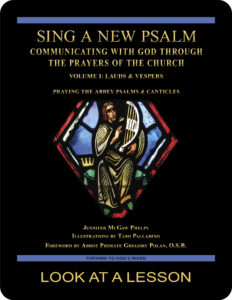vanity
 “Vanity of vanities! All things are vanity!” We encounter this well-known passage in the Book of Ecclesiastes (NABRE). In this passage, the author relates to all of life as vanity, a concept that many have found very relatable over time. While we intuitively have a sense of what this passage is saying, what actually does it mean to say that “all things are vanity”?
“Vanity of vanities! All things are vanity!” We encounter this well-known passage in the Book of Ecclesiastes (NABRE). In this passage, the author relates to all of life as vanity, a concept that many have found very relatable over time. While we intuitively have a sense of what this passage is saying, what actually does it mean to say that “all things are vanity”?
In the Hebrew text, the Book of Ecclesiastes 1:2 (NABRE) is even more potent with six of the eight words in the verse being derivatives of the same Hebrew word הֶבֶל (hebel). This word that is so powerfully translated as “vanity” literally means “vapor” or “breath.” The Hebrew image is of something that is here one second and then as quickly passes away similar to the way that a breath or a vapor vanishes into the air.
How does it change your view of this passage to see it as suggesting that everything is transitory rather than vain? Can you relate better or worse to the literal meaning? What point do you think that the author is trying to make by emphasizing that everything passes away? How might that insight change the way we live?
you also may like Volume I of our Psalms study
 Sing a New Psalm: Communicating with God Through the Prayers of the Church—Volume I: Lauds & Vespers provides an in-depth look at Psalms prayed in morning and evening liturgies. (Volume II, set for publication in 2024, looks at Vigils, Day Prayer & Compline.) The study is based on The Abbey Psalms and Canticles, a translation prepared by the Benedictine monks of Conception Abbey and published by the United States Conference of Catholic Bishops (USCCB). Click on the book’s cover to view a sample lesson.
Sing a New Psalm: Communicating with God Through the Prayers of the Church—Volume I: Lauds & Vespers provides an in-depth look at Psalms prayed in morning and evening liturgies. (Volume II, set for publication in 2024, looks at Vigils, Day Prayer & Compline.) The study is based on The Abbey Psalms and Canticles, a translation prepared by the Benedictine monks of Conception Abbey and published by the United States Conference of Catholic Bishops (USCCB). Click on the book’s cover to view a sample lesson.
 Click on the picture of the statue of Moses with horns (above) to learn more about Lost in Translation. A new entry is archived each Monday. Contact us to receive Lost in Translation by email every week. You may use any of the contact links on our website to ask Matthew a question.
Click on the picture of the statue of Moses with horns (above) to learn more about Lost in Translation. A new entry is archived each Monday. Contact us to receive Lost in Translation by email every week. You may use any of the contact links on our website to ask Matthew a question.
